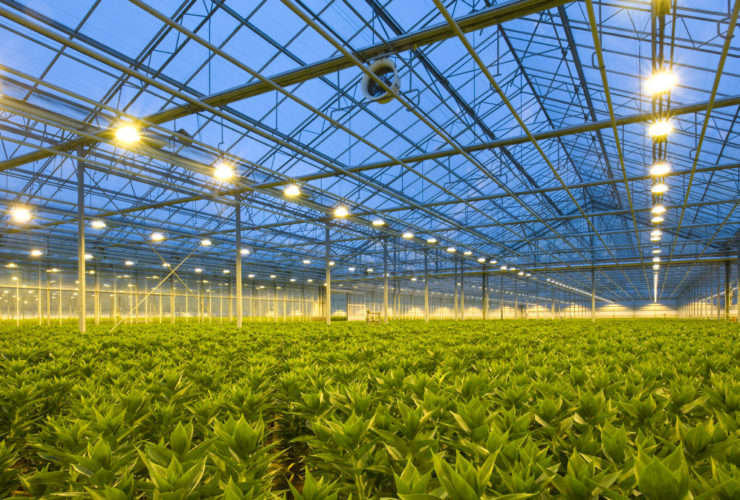Greenhouse gardening provides the advantage of a controlled environment, but the choice of fertilizers plays a critical role in ensuring optimal plant growth and sustainability. Organic nutrients have become the gold standard for many greenhouse gardeners, offering a natural, eco-friendly approach that enhances soil health, plant vitality, and long-term productivity. Below, we delve deeper into the myriad benefits of organic nutrients and their transformative impact on greenhouse gardening.
Healthy Soil for Thriving Plants
The foundation of a successful greenhouse garden lies in its soil. Organic nutrients enrich the soil with essential components that improve its structure and foster microbial life.
- Microbial Support: Beneficial microorganisms break down organic matter into bioavailable nutrients, forming a symbiotic relationship with plant roots. This process supports plant resilience against diseases and environmental stress.
- Improved Structure: Organic fertilizers enhance soil aeration and porosity, making it easier for roots to access water and nutrients.
Healthy soil promotes robust plant growth, better root systems, and higher resilience to pests and diseases.
Eco-Friendly Gardening Practices
Organic fertilizers offer an environmentally sustainable alternative to synthetic options, which often contribute to pollution and ecological damage.
- Biodegradability: Unlike synthetic fertilizers, organic inputs break down naturally, leaving no harmful residues.
- Reduced Runoff: Organic nutrients are less likely to leach into waterways, minimizing the risk of eutrophication and water pollution.
- Carbon Footprint: Many organic fertilizers are derived from recycled plant or animal materials, reducing reliance on industrial manufacturing processes.
By choosing organic methods, greenhouse gardeners actively contribute to preserving local ecosystems and promoting sustainable practices.
Enriched Nutrient Content for Plants
Organic fertilizers are rich in both macronutrients and micronutrients, providing a comprehensive nutritional profile for plants.
- Trace Elements: Organic inputs supply essential minerals such as zinc, iron, manganese, and copper, which enhance crop quality and nutritional value.
- Nutrient Bioavailability: The natural decomposition process ensures nutrients are released gradually, making them easier for plants to absorb.
This results in healthier, more nutrient-dense crops that benefit both gardeners and consumers.
Reduced Risk of Over-Fertilizing
One of the most significant advantages of organic nutrients is their slow-release mechanism, which prevents over-fertilization—a common issue with synthetic fertilizers.
- Controlled Nutrient Delivery: Organic matter releases nutrients gradually over time, ensuring plants receive consistent nourishment without overwhelming their root systems.
- Preventing Nutrient Burn: Slow-release fertilizers reduce the risk of nutrient burn, which can damage roots and stunt plant growth.
This makes organic fertilizers an ideal choice for novice gardeners and those seeking a low-maintenance solution.
Long-Term Soil Fertility
Unlike synthetic fertilizers, which can degrade soil health over time, organic inputs contribute to the long-term fertility of the growing medium.
- Enhanced Biological Activity: Organic matter supports the growth of beneficial fungi, bacteria, and earthworms, which play a crucial role in nutrient cycling.
- Improved Soil Chemistry: Organic fertilizers balance soil pH levels and increase cation exchange capacity (CEC), enhancing the soil’s ability to retain and supply nutrients.
With regular use, organic fertilizers create a sustainable growing environment that can support greenhouse gardening for years.
Increased Organic Matter Content
Adding organic nutrients to the soil boosts its organic matter content, which offers several critical benefits:
- Water Retention: Organic matter helps soil retain moisture, reducing the need for frequent irrigation.
- Nutrient Storage: Acts as a reservoir for nutrients, making them available to plants as needed.
- Soil Aeration: Improves air circulation in the root zone, preventing issues like compaction.
These benefits collectively enhance soil productivity and crop yields.
Water Efficiency
Greenhouse environments often require precise water management, and organic fertilizers support this need effectively:
- Improved Hydration: Soil enriched with organic matter retains water more efficiently, reducing evaporation losses.
- Efficient Irrigation: Organic nutrients reduce water demand, making them ideal for water-scarce regions or drought-prone areas.
This promotes sustainable water usage without compromising plant health.
Compost: The Organic Powerhouse
Compost is a cornerstone of organic gardening, offering a rich source of nutrients and organic matter.
- Nutrient-Rich Input: Compost provides a slow and steady release of essential nutrients, reducing reliance on synthetic fertilizers.
- Waste Reduction: Composting plant and kitchen waste creates a closed-loop system, turning waste into a valuable resource.
- Enhanced Soil Structure: Incorporating compost improves the soil’s texture and ability to retain moisture and nutrients.
By integrating compost into greenhouse gardening, growers can create a self-sustaining system that supports both plants and the environment.
Conclusion
Organic nutrients are more than just a fertilizer—they are a holistic solution for greenhouse gardening, promoting soil health, environmental sustainability, and crop quality. From reducing the risk of over-fertilization to enhancing soil structure and water efficiency, organic practices empower growers to cultivate vibrant, high-yield crops while minimizing their ecological footprint.
Whether you are an experienced grower or a beginner, incorporating organic fertilizers into your greenhouse garden is a step toward sustainability, productivity and superior plant health.





